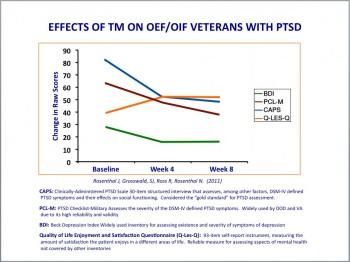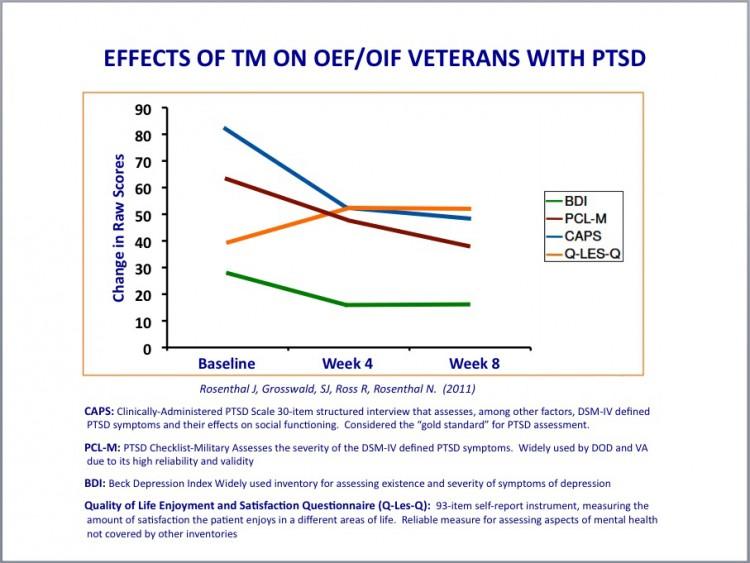Veterans of the Iraq and Afghanistan wars showed a 50 percent improvement in their post-traumatic stress disorder (PTSD) following eight weeks of practicing meditation, researchers report in this month’s issue of Military Medicine.
Researchers, led by Dr. Norman Rosenthal, clinical professor of psychiatry at Georgetown University Medical School, studied five veterans who had engaged in moderate or heavy moderate combat for 10 months to two years in Iraq and/or Afghanistan.
The veterans were taught the Transcendental Meditation technique and then evaluated mainly according to the Clinician Administered PTSD Scale (CAPS), a tool used to diagnose and assess PTSD in trauma survivors.
The investigators found that all of the veterans showed significant improvement in their CAPS scores. Moreover, the veterans showed improved scores on other surveys such as the Quality of Life Enjoyment and Satisfaction Questionnaire.
“Even though the number of veterans in this study was small, the results were very impressive,” says Rosenthal in a press release. “These young men were in extreme distress as a direct result of trauma suffered during combat, and the simple and effortless Transcendental Meditation technique literally transformed their lives.”
He reasons that meditation helps by decreasing activity in the sympathetic nervous system, which, in those with PTSD, is overactive and responsible for over-reactivity to stress. “Transcendental Meditation quiets down the nervous system, and slows down the ‘fight-or’flight' response.”
A study in 2008 by the RAND Corporation estimated that 225,000 veterans from the Iraq and Afghanistan wars alone suffer from PTSD and the majority of cases are inadequately treated.
“The condition is common, affecting an estimated one in seven deployed soldiers and Marines, most of whom do not get adequate treatment,” says Rosenthal. “So far, only one treatment—simulation exposure to battleground scenes—has been deemed effective, but it requires specialized software and hardware, trained personnel and is labor intensive.
“Based on our study and previous findings, I believe Transcendental Meditation certainly warrants further study for combat-related PTSD.”
The Epoch Times publishes in 35 countries and in 19 languages. Subscribe to our e-newsletter.






